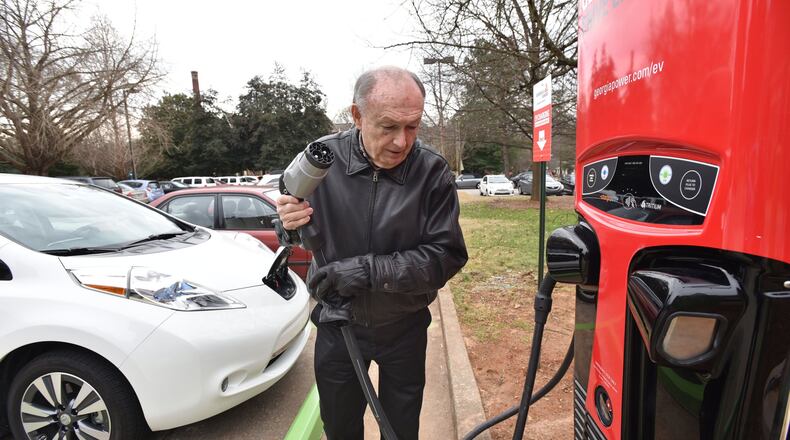Electric vehicle purchases in Georgia have plummeted since the General Assembly revoked a $5,000 income tax credit in 2015 for buying one.
Along with revoking the tax credit, lawmakers also slapped a $200 registration fee on the cars to make up for gas tax owners of those vehicles don't pay. The result has been a 90 percent drop from pre-2015 levels, which some lawmakers say only underscores the fact that the state was propping up sales, rather than consumer demand.
“It should be market driven, and a free-market approach answers a lot of questions,” said Sen. Butch Miller, R-Gainesville, who served on an alternative fuels joint study committee last year.
That special legislative committee met three times in 2016 but made not legislative recommendations. But advocates for electric vehicles hope lawmakers can be persuaded to help their cause, either by providing some incentives or reducing the registration fee, which is the highest in the nation.
Don Francis, director of Clean Cities Georgia, is hoping to lawmakers will agree to roll back sales tax on the purchase of zero-emission cars , similar to what other states have done.
Jeff Cohen, founder of the Atlanta Electric Vehicle Development Coalition, said he’d like to see the registration fee reduced. Georgia is second in the nation with about 25,000 electric cars on the road, but Cohen said the loss of the tax credit has hurt the cause.
“We should be around 40,000 vehicles now,” he said. “We’re not growing.”
About the Author
Keep Reading
The Latest
Featured




